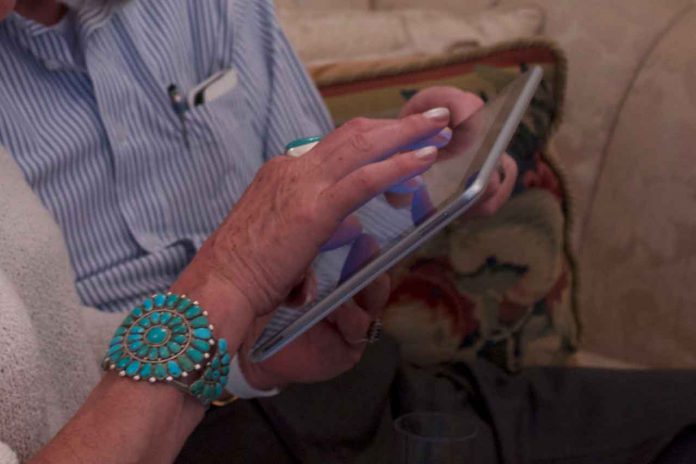Mental health disorders are becoming increasingly more prevalent—especially in aging populations. Unfortunately, these disorders often go unrecognized and undiagnosed as many seniors struggle to seek the help they need. Many elders find old age isolating and painful as their families move across states, spouses pass away, and independence and health decrease. Studies have shown that loneliness can induce physical and mental health deficits—like cognitive declines, chronic illnesses, and even premature mortality.
Although isolation is less-than-ideal, seniors are—now more than ever due to COVID-19—detached from the outside world. However, with pandemic-induced isolation measures have come innovative tech-based solutions to communication. Social connection is imperative for seniors explicitly as they navigate old age and the various health effects. New technological services—like virtual meet-ups, improved Facetime technology, and easy-to-use social media features—keep seniors updated on family drama and connected to needed healthcare professionals.
The benefits of social connection for seniors
While isolation can wreck seniors’ mental and physical health, social connection can positively benefit elderly wellbeing. Seniors who engage more frequently in social activities have improved mental and physical health, ultimately prolonging their life. Social engagement fosters a sense of belonging that positively benefits seniors, especially amidst the COVID-19 pandemic. With the implementation of new-and-improved technology, virtual connection offers seniors unparalleled mental health benefits.
Tech-based solutions
Senior-friendly cell phones
Cell Phones have traditionally been complicated and confusing for seniors to use. However, new senior-friendly cell phones are easy to use and accessible for older folks struggling to keep up with ever-changing technology. Companies like Lively Direct offer seniors effortless communication with family, friends, and healthcare professionals, keeping them socially engaged and mentally stimulated. Easy-to-use cell phones provide peace of mind for seniors and loved ones alike by encouraging social interaction and healthy communication.
Video calls
With new-and-improved video-call technology, seniors can have face-to-face conversations with friends and family from the comfort of their own homes. However, using face-chat applications—like Facetime and Skype—requires basic computer or cell phone literacy. Taking time out of your busy schedule to teach your aging loved one about important tech allows for their increased independence and meaningful social interactions for you and the seniors in your life.
Marco Polo and WhatsApp
Marco Polo or Whatsapp may do the trick for seniors looking to branch out into newer, more advanced tech-based communication avenues. Chat-based applications are exciting, fun-filled options that combine the benefits of traditional calling, texting, and video capabilities in one, easy-to-use phone app.
Zoom
Since the beginning of the COVID-19 pandemic, many seniors have begun using Zoom—a video conferencing platform—to connect and engage with life outside their home. This life-changing technology had made maintaining social interaction uncomplicated and enjoyable for all parties involved.
Social media
People over 65 are the fastest-growing group on Facebook due to its ability to connect people worldwide. Facebook makes it easy for friends and family to keep in touch, and—in recent years—has implemented changes to make pen-pal relationships possible and safe. Instagram is another social media app that allows seniors to connect with loved ones by allowing them to like, post, and comment on photos from far-away family events.
Risk factors for mental health disorders in seniors
Social isolation and loneliness are serious health risks for older folk—especially during a global pandemic. Mental health conditions—like depression, anxiety, and dementia— are common among seniors experiencing increased loneliness and isolation levels. When left untreated, mental disorders can lead to physical impairments, substance abuse, a general disregard for life. Friends and family of senior citizens must do their part to decrease social isolation by setting elders up with tech-based communication solutions.







